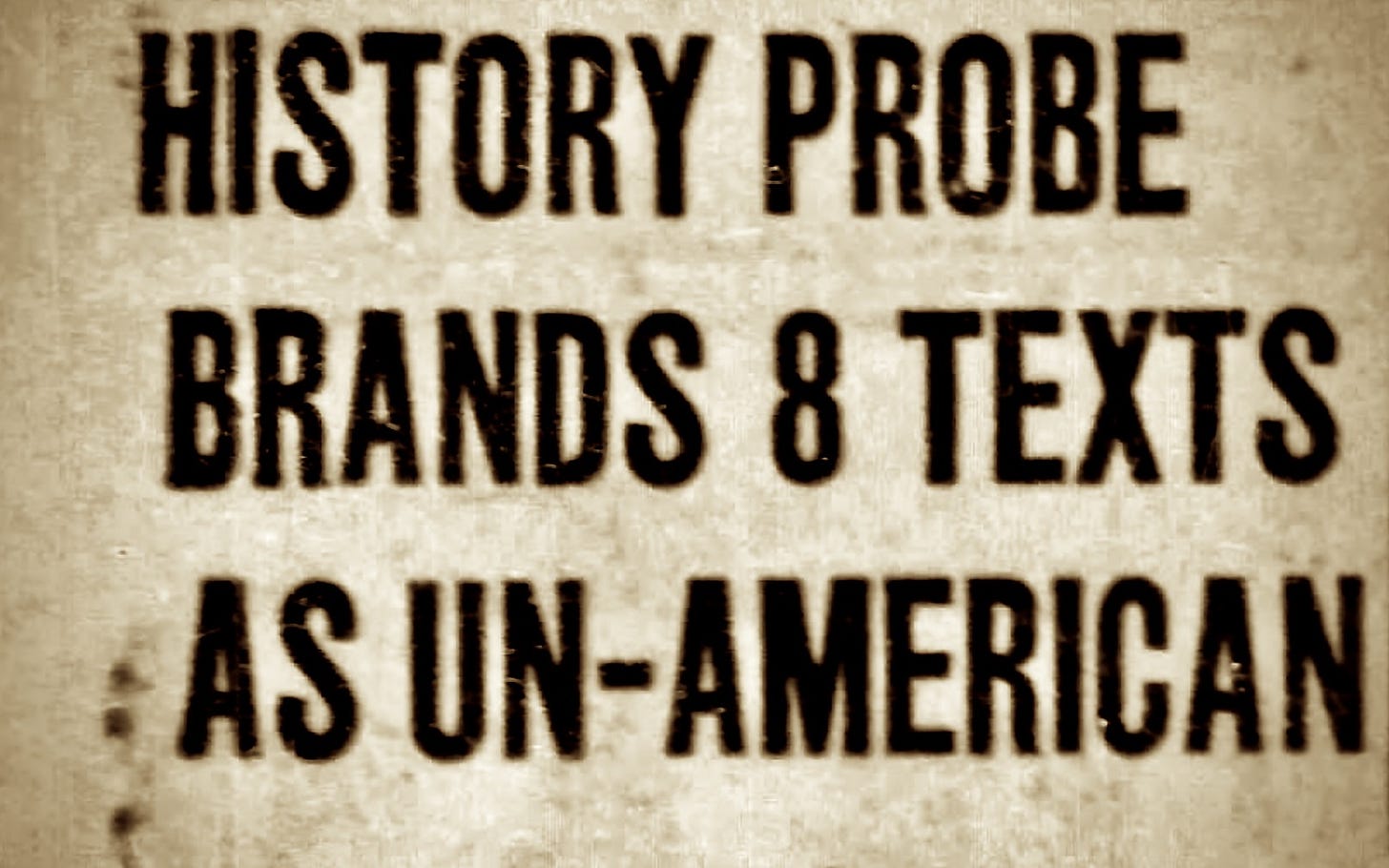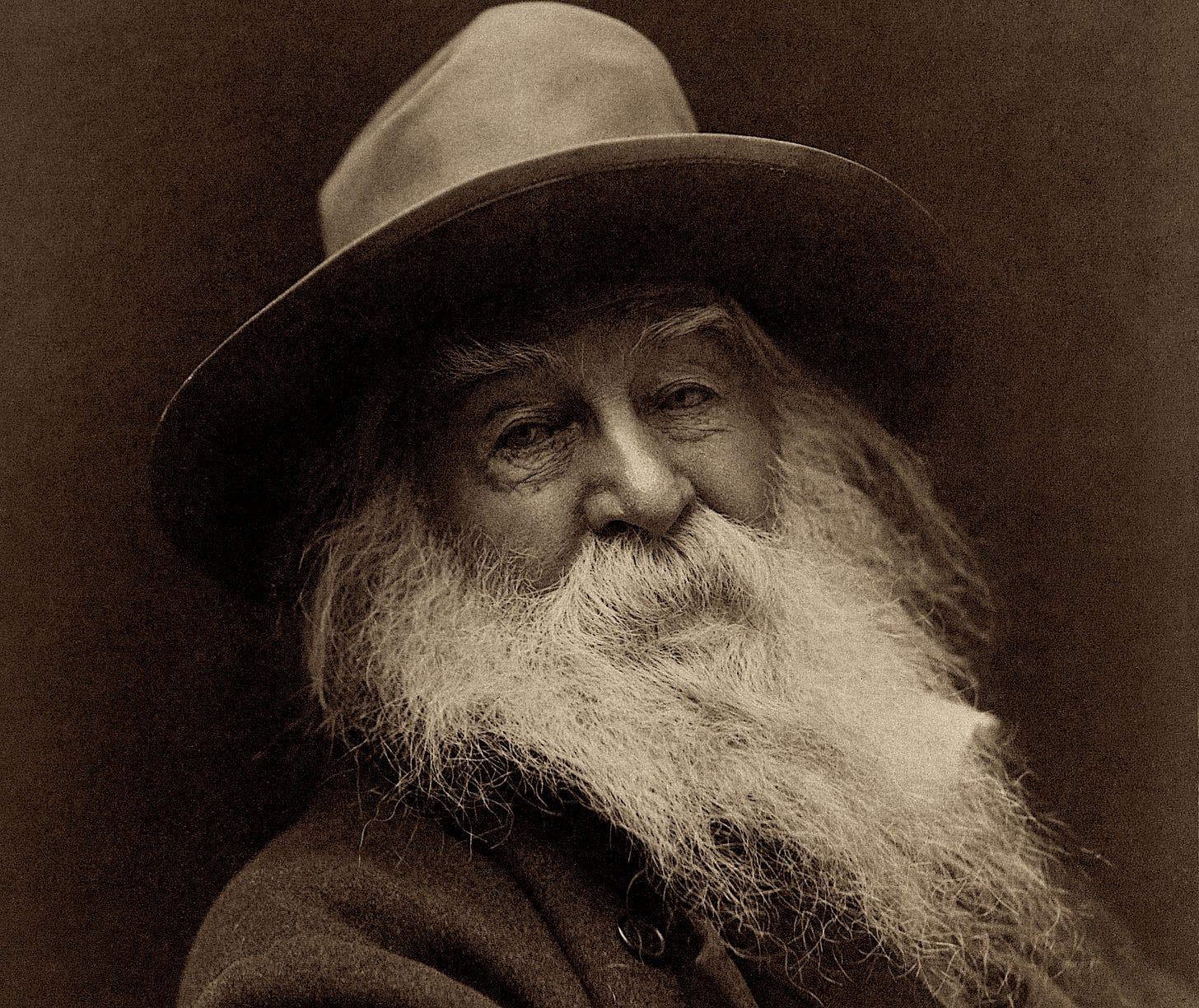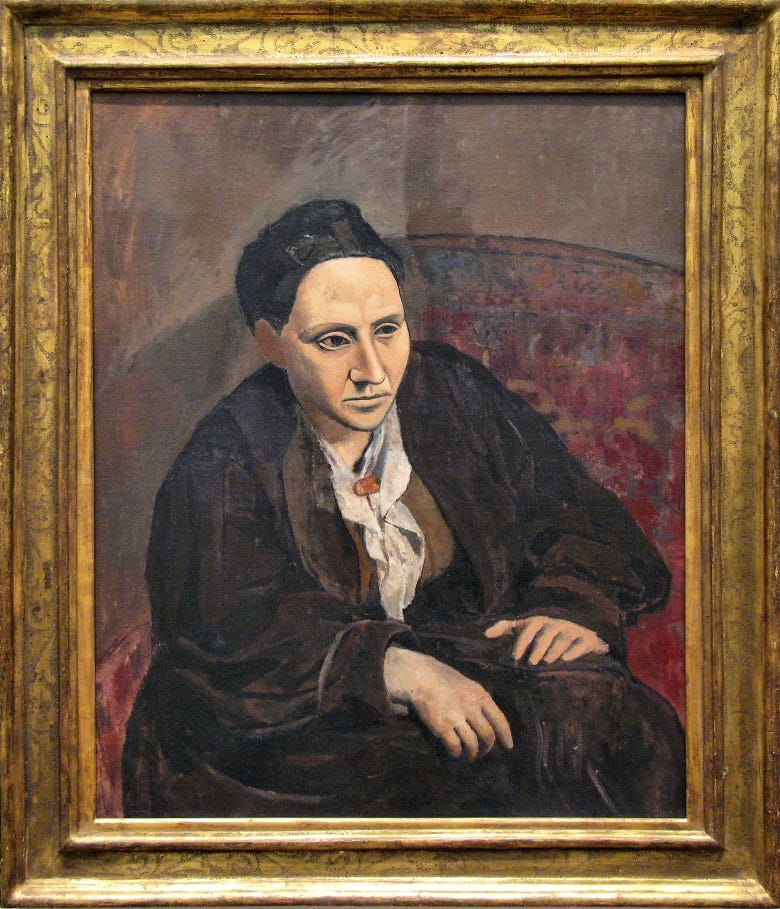Whitman and Baldwin and Ginsberg, Oh My
This week's back issues: a New York Pride reading list
Welcome back to Culture Club, a feature where David and I write about what we’ve been reading, watching, playing, and listening to, for paid subscribers. Please enjoy this free preview, and consider upgrading to support two struggling journalists at once! — Talia
Exactly one hundred years ago, the Chicago Tribune ran a story with the headline, “History Probe Brands 8 Texts as Un-American.” This morning, when I discovered this artifact of America’s enduring intolerance, it seemed like just the pretext to return to the virtual newsstand. I wrote a few weeks ago about my affection-for/obsession-with online archives, so for tonight’s newsletter I decided to curate another reading list. This one includes pieces by and about Walt Whitman and Allen Ginsberg, respectively: two icons of queer New York whose birthdays happen to coincide with the start of Pride month. There are also pieces by Gertrude Stein, James Baldwin, Hunter S. Thompson, and Michael Lewis; a National Geographic portrait of Ukraine from 1918; and a New York magazine package celebrating the long-overdue arrival of drag in the American mainstream. That one was published in 1995. Be forewarned: these are all relics of their times, and some include language and ideas that are anachronistic if not the downright offensive. (Phrenology. TERFs.) If nothing else, though, they show us the progress we’ve made. For better or for worse.
An American Primer
By Walt Whitman
The Atlantic, April, 1904
I like limber, lasting, fierce words. I like them applied to myself,—and I like them in newspapers, courts, debates, congress. Do you suppose the liberties and the brawn of these States have to do only with delicate lady-words? with gloved gentlemen words? Bad Presidents, bad judges, bad clients, bad editors, owners of slaves, and the long ranks of Northern political suckers (robbers, traitors, suborned), monopolists, infidels. … shaved persons, supplejacks, ecclesiastics, men not fond of women, women not fond of men, cry down the use of strong, cutting, beautiful, rude words. To the manly instincts of the People they will forever be welcome.
The Ukraine, Past and Present
National Geographic, August, 1918
The Ukraine has had a troublesome career. The wild Scythians helped to feed ancient Greece and her colonies from these same endless steppes whence Germany now expects to draw sustenance. A thousand years ago Kiev was already becoming an important place. When the Saxons still ruled England, in the long ago, the banks of the Dnieper were a meeting-place for many races, drawn thither by commerce. Religious differences had not yet arisen, for all were worshippers of idols. Even then a Slav people were safely established here, sowing and reaping their harvests and sending their surplus grain down this river to the Black Sea.
100 Years Ago in America
“History Probe Brands 8 Texts as Un-American”
Chicago Tribune, June 4, 1923
David Hirschfield, commissioner of accounts who was delegated by Mayor Hylan in December, 1921, to investigate charges that American history textbooks used in the public schools contained anti-American propaganda and besmirched American traditions, tonight made public his report in which he specifically condemned eight histories selected by the superintendent of schools and took to task a number of well known persons and societies.
“It would seem,” said the commissioner, “as if these authors wish to convey the impression that our history, our government, and everything else American is all wrong and that the sole hope for American progress lies in our surrendering our American spirit and becoming again an integral part of the British empire.”
And now
By Gertrude Stein
Vanity Fair, September, 1934
In the first place Picasso and I are no longer friends. All the writers about whom I wrote wrote to me that they liked what I wrote but none of the painters. The painters did not like what I wrote about them, they none of them did. They just, as Henry McBride afterward told me that Matisse did, they shuddered.
I remember when there was the first big show at the autumn salon, I imagine about 1905, of Cézanne, his really first serious public recognition, they told the story that he was so moved he said he would now have to paint more carefully than ever. And then he painted those last pictures of his that were more than ever covered over painted and painted over. Perhaps it is like that.
But to tell it all just as it had happened because of course a great deal has happened not only to me and to everybody I knew but to everything else. Once more Paris is not as it was.
A Letter to My Nephew
By James Baldwin
The Progressive, December 1, 1962
This innocent country set you down in a ghetto in which, in fact, it intended that you should perish. Let me spell out precisely what I mean by that for the heart of the matter is here and the crux of my dispute with my country. You were born where you were born and faced the future that you faced because you were black and for no other reason. The limits to your ambition were thus expected to be settled. You were born into a society which spelled out with brutal clarity and in as many ways as possible that you were a worthless human being. You were not expected to aspire to excellence. You were expected to make peace with mediocrity. Wherever you have turned, James, in your short time on this earth, you have been told where you could go and what you could do and how you could do it, where you could live and whom you could marry.
Keep reading with a 7-day free trial
Subscribe to The Sword and the Sandwich to keep reading this post and get 7 days of free access to the full post archives.







